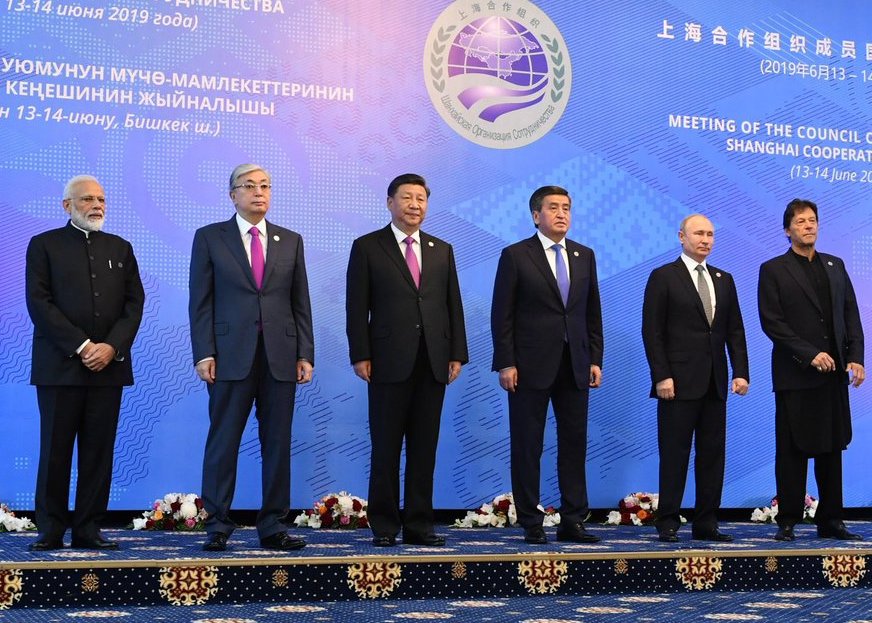
Dushanbe: World leaders from the Shanghai Cooperation Organisation (SCO) met in Kyrgyzstan's capital city of Bishkek for the 19th meeting of the Council of SCO Heads of State.
The SCO member states comprise in alphabetical order China, India, Kazakhstan, Kyrgyzstan, Pakistan, Russia, Tajikistan, and Uzbekistan. The meeting was chaired by the President of Kyrgyzstan Sooronbay Jeenbekov.
In addition to Jeenbekov, the meeting was attended by China's President Xi Jinping, India's Prime Minister Narendra Modi, President Kassym-Jomart Tokayev of Kazakhstan, Pakistan's Prime Minister Imran Khan, the President of Russia Vladimir Putin, President Emomali Rahmon of Tajikistan, and President Shavkat Mirziyoyev of Uzbekistan.
The leaders reviewed the implementation of the results of the 2018 Qingdao Summit and the priority goals for SCO development.
In a document issued at the conclusion of the meeting, the SCO Heads of State Council declared: "The modern world continues to change rapidly, the global balance of forces is going through a reconfiguration, primarily due to the emergence of new development centres in Asia, and the connectivity and interdependence between participants in international relations is deepening.
"However, the situation in global politics and economy remains turbulent and tense, and the process of economic globalisation is being hindered by growing unilateral protectionist policies and other challenges in international trade."
The statement added: "The Member States, relying on the Shanghai Spirit, which embodies mutual trust, mutual benefit, equality, mutual consultations, respect for cultural diversity, common development, the goals and objectives of the SCO Charter and the SCO Development Strategy until 2025, intend to continue to develop cooperation in politics, security, trade and the economy, finance and investment, and their cultural and humanitarian ties."
The SCO, as outlined in the declaration, "will enhance its participation in efforts to ensure peace and security, consistently advocating the resolution of international and regional conflicts by exclusively peaceful political and diplomatic means, based on the principles of equality, respect for sovereignty, territorial integrity and non-interference in the internal affairs of other countries, the non-use of force or the threat of force."